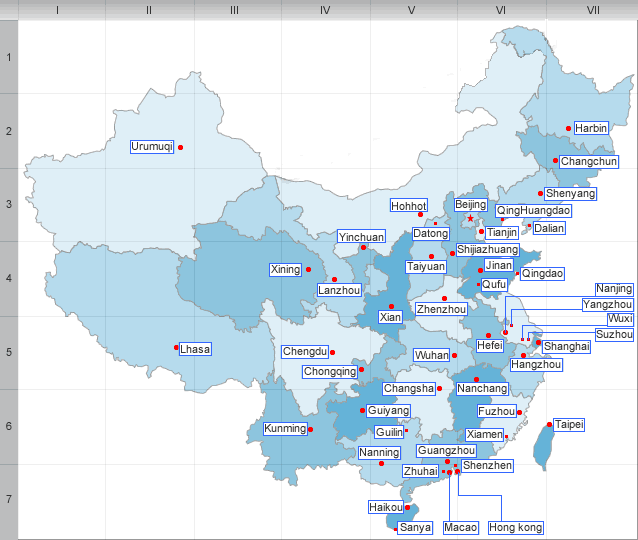Culture of JIangsu
Culture
The province of Jiangsu was formed in the seventeenth century. Before then, the northern and southern parts of Jiangsu had less connection than that later. Traditionally, South Jiangsu is referred to as the three more prosperous southern cities including Suzhou, Wuxi and Changzhou. Their culture is more southern than the rest and is often referred to as the Wu. All the other parts of the province is dominated by the so-called "Jianghuai Culture", which means the culture in the area between the Yangtze River (Jiang) and Huaihe River (Huai), though not all of them lie within the district defined by the term. In history, the term North Jiangsu refers to the cities to the north of the Yangtze River. For cities of Nanjing and Zhenjiang, neither the two terms (North Jiangsu and South Jiangsu) refers to them, because though they are to the south of the River, culturally they are still of the Jianghuai Region. Since about 1998, there is a new classification used frequently by the government and defined by economic means. It groups all the cities to the south of the Yangtse River as South Jiangsu, the cities of Yangzhou, Nantong and Taizhou as Middle Jiangsu, and all the rest as North Jiangsu.
Though the terms of classification are very complex, by cultural means only the very north cities of Xuzhou and Lianyungang are culturally north Chinese. All the rest areas of the province are culturally south, though the three South Jiangsu cities are more purely southern while the culture in other cities is more a transitional mixture dominated by the southern.
Two main subdivisions of the Chinese language, Mandarin and Wu are spoken in different parts of Jiangsu. Dialects of Mandarin are spoken over the traditional North Jiangsu, Nanjing and Zhenjiang, while Dialect of Wu is used in South Jiangsu. Mandarin and Wu are not mutually intelligible and the dividing line is sharp and well-defined.
Jiangsu is rich in cultural traditions. Kunqu, originating in Kunshan, is one of the most renowned and prestigious forms of Chinese opera. Pingtan, a form of storytelling accompanied by music, is also popular: it can be subdivided into types by origin: Suzhou Pingtan (of Suzhou), Yangzhou Pingtan (of Yangzhou), and Nanjing Pingtan (of Nanjing). Xiju, a form of traditional Chinese opera, is popular in Wuxi, while Huaiju is popular further north, around Yancheng. Jiangsu cuisine is one of the eight great traditions of the cuisine of China.
Since ancient times, south Jiangsu has been famed for its prosperity and opulence, and simply inserting south Jiangsu place names (Suzhou, Yangzhou, etc.) into poetry gave an effect of dreaminess, as was indeed done by many famous poets. In particular, the fame of Suzhou (as well as Hangzhou in neighboring Zhejiang province) has led to the popular saying: Above there is heaven; Below there is Suzhou and Hangzhou(上有天堂,下有苏杭), a saying that continues to be a source of pride for the people of these two still prosperous cities. Similarly, the prosperity of Yangzhou has led poets to dream of: With a hundred thousand strings of coins wrapped around the waist, riding a crane down to Yangzhou(腰缠十万贯,骑鹤下扬州).
| PREV:History, Ethnic groups and Tourism of | Next:Economy of Jiangsu |



